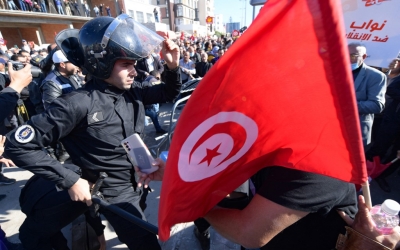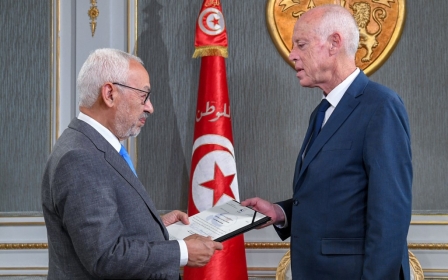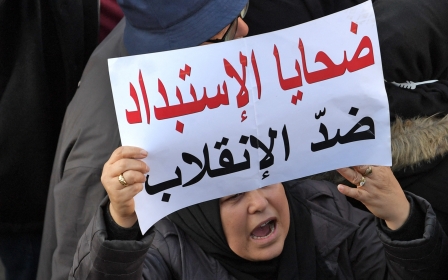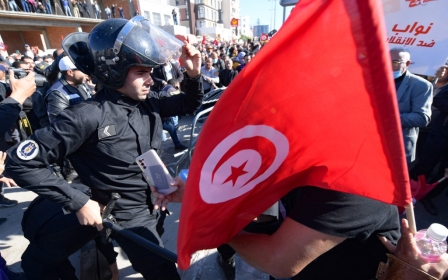Tunisia: President Saied dissolves Supreme Judicial Council
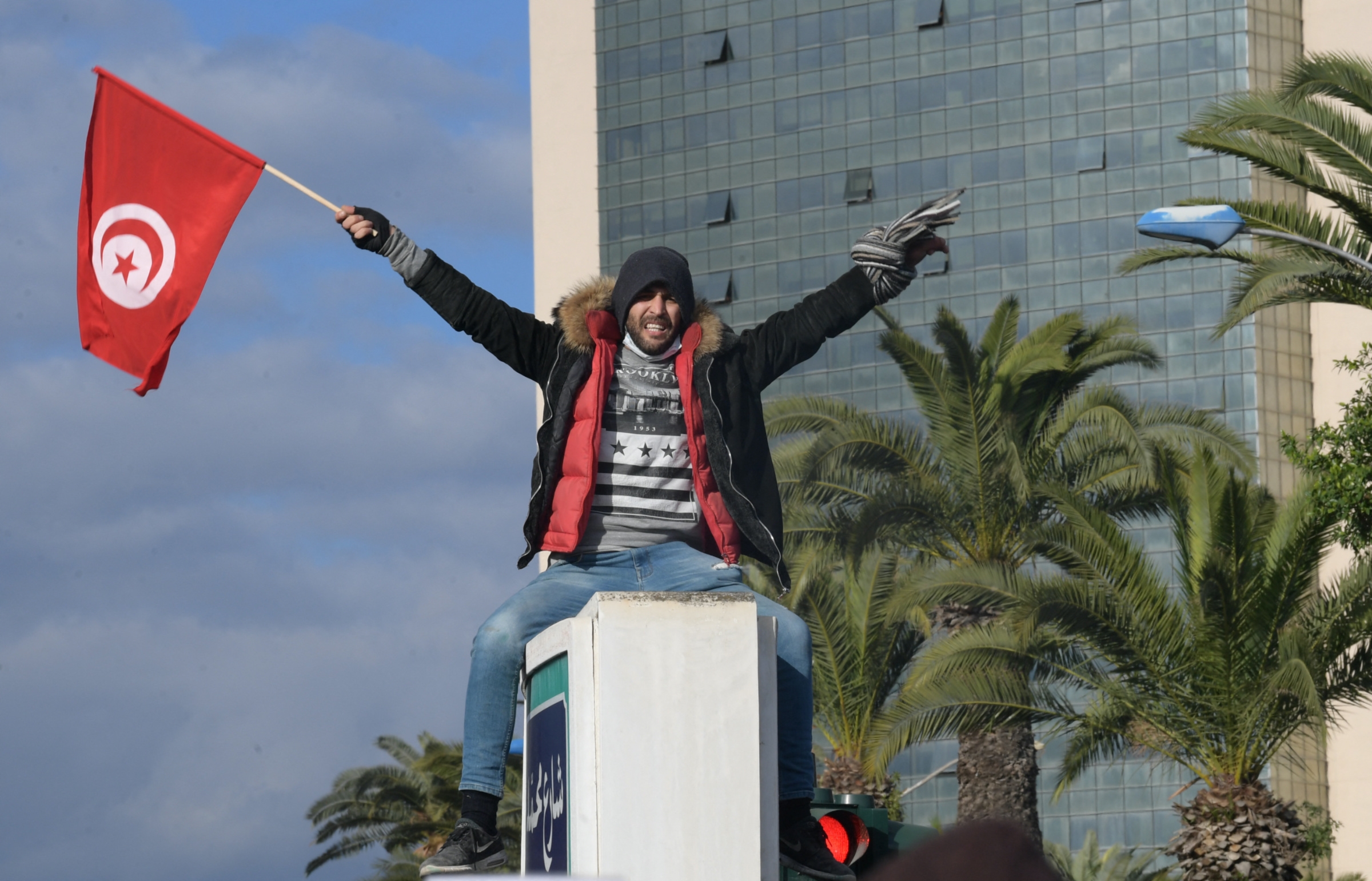
Tunisian President Kais Saied on Sunday dissolved the Supreme Judicial Council, the body that deals with judicial independence, a move the country's top judge denounced as illegal.
Saied accused the body responsible for appointing judges of bias, corruption and delaying politically sensitive investigations - including into the assassinations of left-wing activists in 2013.
"In this council, positions and appointments are sold and made according to affiliations," he said.
"You cannot imagine the money that certain judges have been able to receive, billions and billions."
Tunisian Supreme Judicial Council head Youssef Bouzakher accused Saied of illegally undermining the judiciary's independence, adding that his decision was an effort to put the judiciary under presidential instruction.
"The president's decision is illegal and a direct assimilation of the presidency," he told Reuters.
Bouzakher warned that "judges will not be silent".
The president has repeatedly said he would not allow judges to act as if they are a state, instead of being a function of the state.
Saied on Sunday called the council a thing of the past, adding he will issue a temporary decree to the council. He gave no details about the decree.
"Unfortunately in this country, some judges in the courts have manipulated the Chokri Belaid case," said Saied, referring to a leftist leader who was shot three times outside his home in February 2013.
"This is not the first trial where they have tried to hide the truth for years.”
Last July, Saied dismissed the government, suspended parliament, and granted himself broad prosecutorial powers, citing skyrocketing unemployment, rampant corruption, and the coronavirus pandemic.
He has also refused dialogue with all political parties since his power grab, which his opponents have described as a coup.
‘Demonstrate freely’
The Supreme Judicial Council is an independent and constitutional institution, formed in 2016. Its powers include ensuring the independence of the judiciary, disciplining judges, and granting them professional promotions.
The president’s latest move is likely to raise fears about the independence of the judiciary.
Last month, Saied revoked all financial privileges for council members.
On Sunday, parties, and organisations, including the union federation (UGTT), will demonstrate to pressure the judiciary to hold those involved in terrorism accountable, on the ninth anniversary of the assassination of Belaid and of Mohamed Brahmi, who was killed in similar circumstances in July the same year.
"I tell Tunisians to demonstrate freely. It is your right and our right to dissolve the Supreme Judicial Council," Saied said.
Saied's approval of Sunday's demonstrations comes even as a government decision to ban all demonstrations remains in effect.
Last month, police fired water cannons and beat protesters with sticks to break up an opposition protest against Saied.
The president has initiated an online public consultation before drafting a new constitution that he says will be put to a referendum in July 2022, followed by parliamentary elections in December.
The move has been rejected by the majority of political forces, including the UGTT.
Middle East Eye propose une couverture et une analyse indépendantes et incomparables du Moyen-Orient, de l’Afrique du Nord et d’autres régions du monde. Pour en savoir plus sur la reprise de ce contenu et les frais qui s’appliquent, veuillez remplir ce formulaire [en anglais]. Pour en savoir plus sur MEE, cliquez ici [en anglais].


